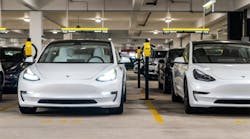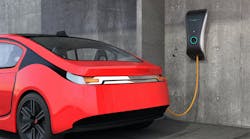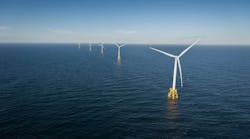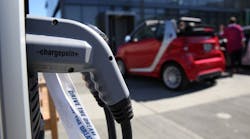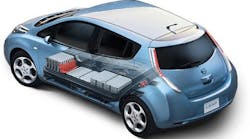There are signs that the long-awaited moment when widespread adoption of electric vehicles pushes EV charging systems into a more mainstream market may be drawing near. Europe is mandating charging systems in new homes, car show prototypes are heavily oriented toward electric drivetrains, and an electric car now dominates the high-end luxury car market.
The passenger electric vehicles (EVs) market in the United States is projected to have 11.4 million EVs on the road, with cumulative sales of 12 million EVs and a value of over $400 billion by 2025, according to a report put out this week by GTM Research.
The study looks at impact on the electrical grid due to the increased loads of charging batteries. It explores the challenges high penetration of EVs is causing for utilities and finds that the growth of EVs “creates opportunities for existing and new market players to provide integrated solutions for the EV driver, electric utility, wholesale energy market and aggregators.”
That list could also include manufacturers of EV charging systems and their market channels of reps, distributors and installers.
The number of passenger vehicles will only account for part of the demand as electric buses, delivery trucks and motorcycles chart their own growth curves.
In another recent study, Navigant Research forecast that global demand for medium and heavy duty buses with electric drives – whether hybrid, plug-in-hybrid, battery or fuel cell – is expected to grow from about 119,000 buses in 2016 to 181,000 in 2026.
On a global basis, Navigant Research expects the global market for EV supply equipment (EVSE) to grow from around 425,000 units in 2016 to 2.5 million in 2025, it said in a report earlier this year.
Another global analyst, MarketsandMarkets, in a report released this week, estimated that the electric vehicle charging stations market is expected to grow at a compound annual rate (CAGR) of 29.8% between 2016 and 2022 and estimated to reach $12.61 billion by 2022.
That global demand picture recently received a significant boost when the European Union (EU) last week approved a new law requiring that an electric car charger be included in every new and renovated home and all apartment buildings starting in 2019.
The EU initiative is intended to lay the infrastructure for the sort of electric car boom envisaged by Norway and the Netherlands, which both plan to completely phase out vehicles with diesel engines by 2025, according to the Guardian.
Another European factor will also present an outsized potential impact on EV charging equipment market. Germany’s high-end automotive manufacturers have become very enthusiastic about electric vehicles in part from the considerable competitive threat presented by Tesla. By making electric cars sexy, Tesla has captured market share from storied brands such as Mercedes-Benz, BMW and Audi. According to Bloomberg, which cited internal Tesla third-quarter sales numbers, Tesla now accounts for almost a third of all sales in the luxury sedan segment.
However the German automotive brand most likely to influence the EVSE market in the near term is Volkswagen, and for a different reason. As part of its settlement with the U.S. over its fiasco around diesel emissions testing, the company is required to invest heavily in building out electric charging infrastructure.
Under terms of the agreement, which has not been officially ruled on by the courts but which the judge in the case said this week he was inclined to approve, besides compensating buyers of its diesel cars and providing funds to mitigate environmental damage, VW will also allocate $2 billion to finance EV education programs and charging infrastructure. Reports in Wired and The Wall Street Journal pointed out that investment of that size would assure Volkswagen a dominant position in charging infrastructure services.
According to Wired, Chargepoint, the country’s largest provider of charging stations, with more than 30,000 locations, has raised $173 million since its founding nine years ago. By the terms of its settlement with the U.S., VW must spend more than 10 times that amount in the next decade.
MarketsandMarkets forecast that the U.S. EVSE market will see the fastest growth through its 2022 forecast horizon. The growth is attributed to the shift towards low emission vehicles, tax credits in various U.S. cities for installation of charging stations, and the federal government’s subsidies and incentives to boost the deployment of EV charging stations under the American Recovery and Reinvestment Act (ARRA).



